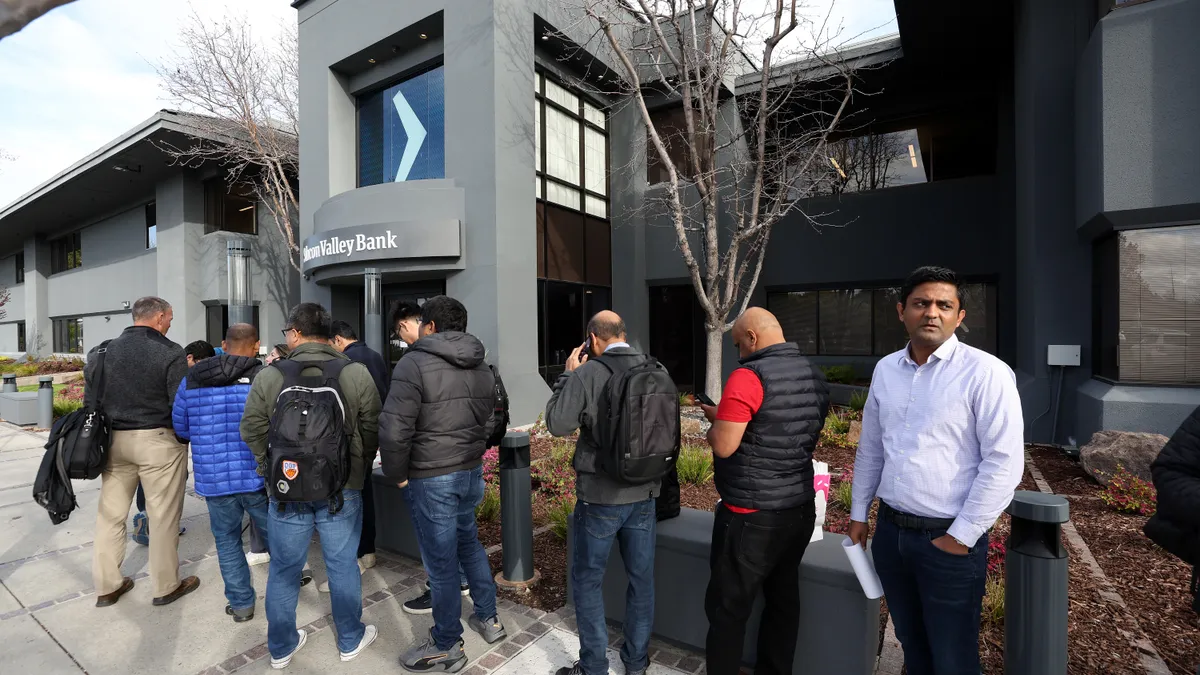A new SVB Financial Group shareholder lawsuit filed Friday names KPMG as one of many defendants in the complaint, shining a light on the auditor’s report signed about two weeks before the bank failed which was “silent” on whether there was any doubt about its ability to continue operating as a going concern.
The proposed class action lawsuit also named as defendants the bank’s then top executives including its CEO and CFO along with its board and four underwriters including Goldman Sachs.The suit asserts the bank’s officers, directors and KPMG deceived the investing public by making untrue statements or omitting material facts about the company that led certain shareholders to buy the stock at artificially inflated prices.
“Even though SVB’s deposits began to decline in 2022, falling $25 billion during the final nine months of 2022 and reducing SVB’s liquidity, KPMG did not identify risks associated with SVB’s declining deposits or SVB’s ability to hold debt securities to maturity in its report,” said the complaint, which was filed in the US. District Court’s Northern District of California.
The suit was filed by Hialeah, Florida-based City of Hialeah Employees’ Retirement System, along with two other retirement and/or pension-related funds that acquired the bank’s shares during the class period. It is seeking unspecified damages for the bank’s investors between Jan. 22, 2021 and March 10, 2023, the day that the Santa Clara, California-based bank was closed by regulators, marking the nation’s largest bank failure since 2008.
An earlier proposed class action, was brought just three days after the bank’s collapse by a group of shareholders led by Chandra Vanipenta, which alleged SVB, CEO Greg Becker and CFO Daniel Beck concealed from investors the impact that high interest rates would have on the tech- and VC-focused firm’s business.
The latest complaint details some reporting in the financial press that has appeared to indicate that the bank had been aware of its risks related to rising interest rates for some time.
The Washington Post reported on April 2 that SVB executives were personally aware, as early as 2020, that SVB’s investment strategies “violated its own risk measures and exposed the bank to substantial issues in the event of higher interest rates,” the complaint noted.
The suit also stated that a March 19 New York Times report revealed that Federal Reserve Bank of San Francisco was aware of SVB’s risky practices for more than a year and had warned the bank of its problems.
Even prior to the lawsuit, the short window between the audit and the bank run raised questions of how SVB’s auditors could have missed the signs of its impending doom so close to the collapse.
Previously KPMG has defended its work and CFO Dive reported that a KPMG spokesperson wrote that the firm conducts its audits in accordance with professional standards and noted that audit opinions are based on evidence available up to and at the date of the opinion.
However, the Silicon Valley matter has also spotlighted KPMG’s long tenure of 29 years working for SVB, raising the specter of whether cozy auditor-client relationships can cut into the rigor of audits. Although there are no regulations in the U.S. that limit the number of years that auditors can provide their services to clients, U.S. regulators have long contemplated limiting how long auditors can do so.
A KPMG spokesperson declined to comment and Silicon Valley Bank did not immediately respond to a request for comment. In an emailed response to questions from CFO Dive a Goldman spokesperson wrote that the firm believes the suit’s claims against it and other underwriters are without merit. “We will vigorously defend against them in court,” the spokesperson wrote.














